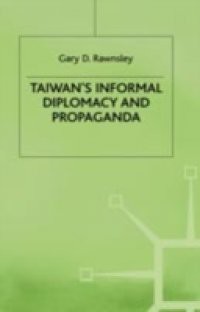How do governments that do not enjoy formal diplomatic relations use propaganda? How do they organize their propaganda? How does it reinforce their diplomacy? And does the propaganda make any difference at all?When the international community denies a government recognition, the importance of propaganda is intensified. They have to use every avenue of publicity available to project their images and policies. The Republic of China on Taiwan is such a government, and its predicament is the subject of this book.Using a range of sources, from unpublished private papers to interviews with the key actors in Taiwan's diplomacy and overseas information activities, this book traces for the first time the development of Taiwan's propaganda from Cold War to 'pragmatic diplomacy'. It examines the role of the relevant government agencies, the overseas Chinese, and Taiwan's international media to illustrate how the Republic of China has reinforced its diplomacy by an intensive propaganda.

